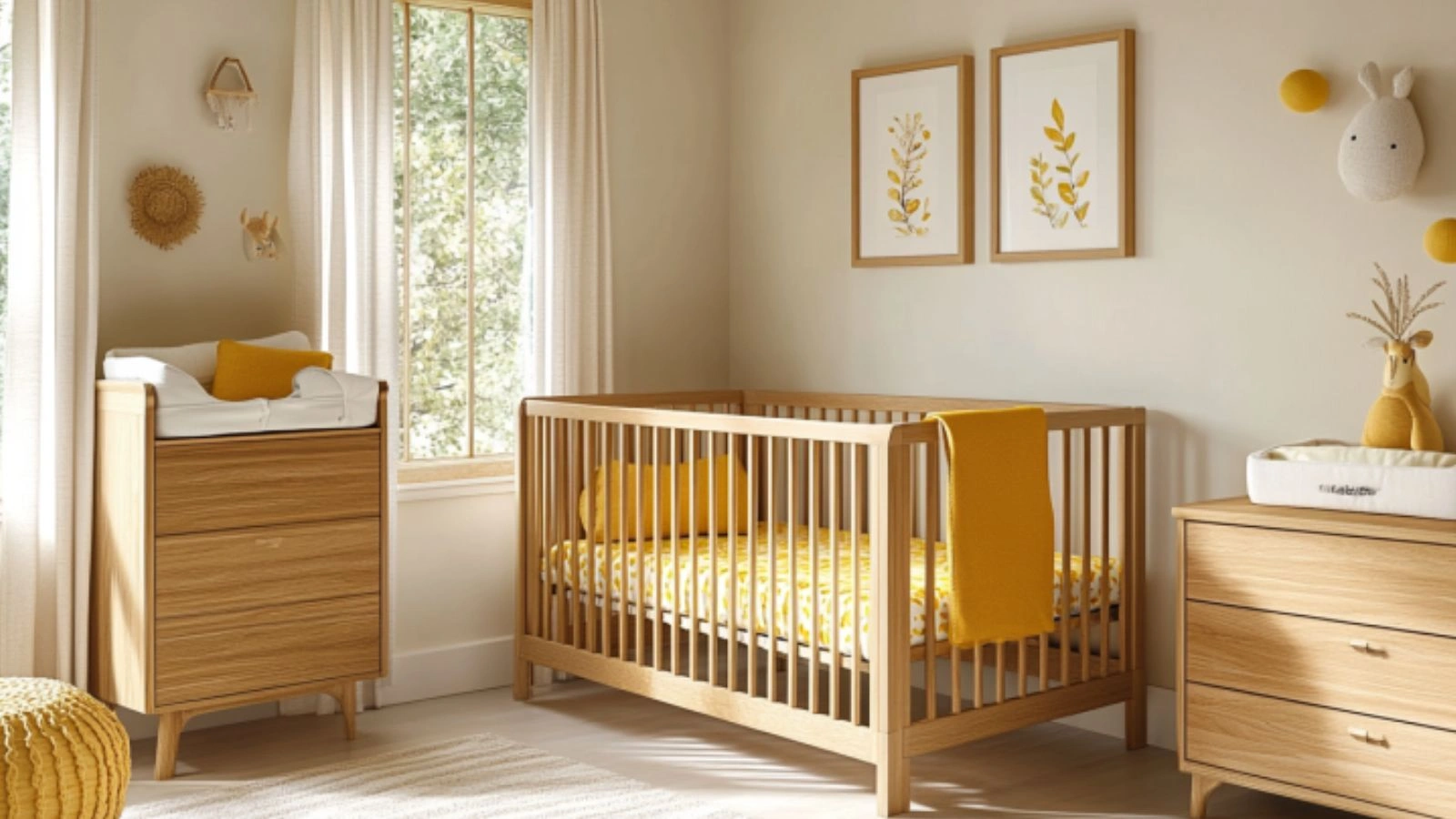How to Create a Yellow Nursery That Grows with Baby: Timeless Design Tips
Table of Contents
Designing a nursery is one of the most joyful parts of preparing for a new arrival. But amidst the excitement, there’s one big challenge: how do you create a space that stays functional and beautiful as your child grows? Choosing the right color palette is a great place to start—and yellow offers the perfect blend of sunshine, versatility, and timeless charm.
Unlike trend-heavy hues, yellow has staying power. It can be soft and serene or bright and playful, and it blends beautifully with a range of styles. A yellow nursery doesn’t have to be loud or overly themed. When styled thoughtfully, it creates a warm, gender-neutral environment that easily evolves from baby to toddler to young child.
In this post, we’ll walk you through everything you need to know about designing a yellow nursery that grows with your baby. From picking the right shade of yellow and choosing convertible furniture to layering in long-lasting accessories and flexible decor—these ideas will help you create a cozy space that stands the test of time.
Choosing the Right Shade of Yellow
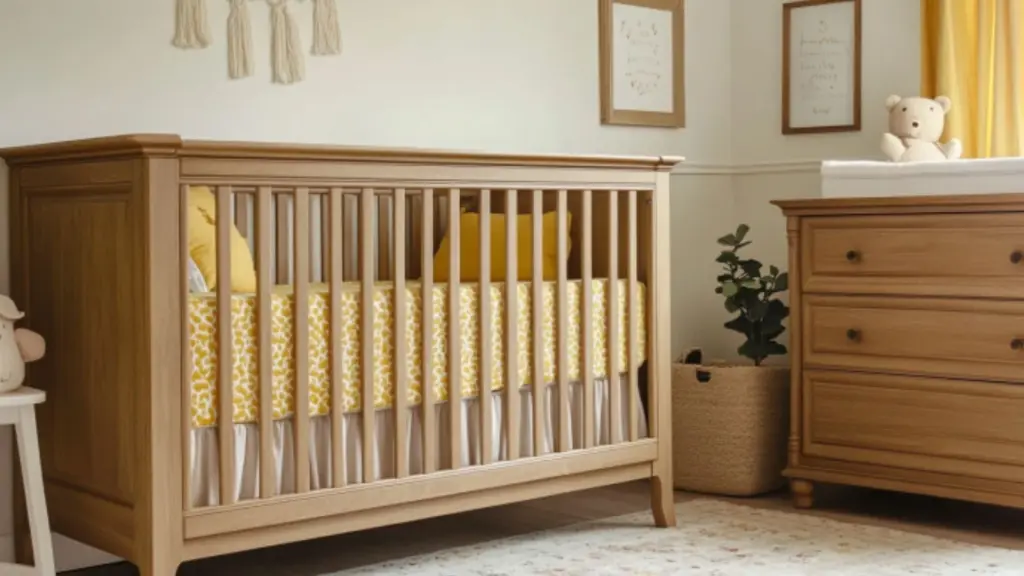
Yellow is a wide spectrum, ranging from buttery creams to bold mustards. Selecting the right tone is key to setting the mood of your nursery and ensuring that it matures well with your child.
For newborns, softer tones like pastel yellow or warm cream promote calmness and comfort. As your baby grows, these hues easily adapt to more playful or sophisticated accessories. On the other hand, brighter yellows bring a burst of energy, making them great for accent walls, rugs, or statement furniture.
Table: Yellow Tones and Their Design Effects
| Shade of Yellow | Mood/Feel | Grows Well With |
|---|---|---|
| Buttercream | Soft, neutral | White, grey, pastel blue |
| Goldenrod | Warm, traditional | Olive green, tan, walnut wood |
| Lemon | Fresh, playful | Navy blue, mint, black |
| Mustard | Rich, retro-inspired | Terracotta, cream, deep green |
Stick with two to three complementary tones to keep the palette cohesive and mature.
Convertible Furniture for Long-Term Functionality
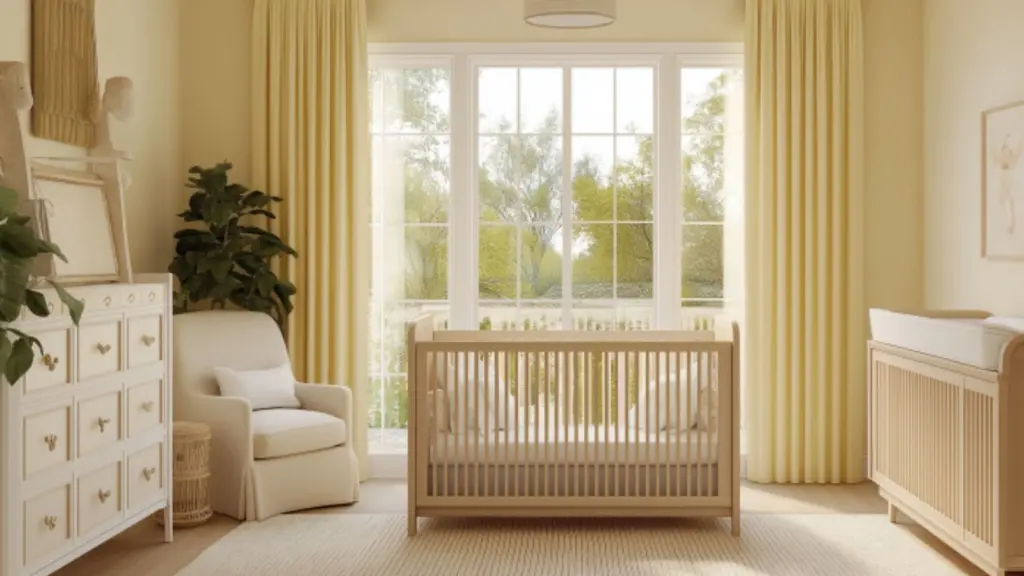
One of the smartest moves when designing a nursery that grows with your child is investing in convertible furniture. Cribs that turn into toddler beds, changing tables that become dressers, and modular storage units all provide longevity without sacrificing style.
Choose pieces in natural wood or white finishes so they blend seamlessly with yellow walls or accents. Look for rounded edges, adjustable heights, and durable construction that can handle the transition from infant to independent child.
Checklist: Must-Have Convertible Nursery Pieces
| Item | Convertible Feature | Ideal Style Match |
|---|---|---|
| Crib | Converts to toddler bed & daybed | White or light oak |
| Changing table | Detachable tray becomes dresser | Mid-century modern or classic |
| Glider or rocker | Upholstered, neutral base for later use | Cream or grey fabric |
| Bookshelves | Stackable and low-profile | Open style with soft bins |
Choosing multipurpose furniture minimizes future renovations—and keeps your nursery feeling organized.
Layering in Yellow Through Textiles and Accessories
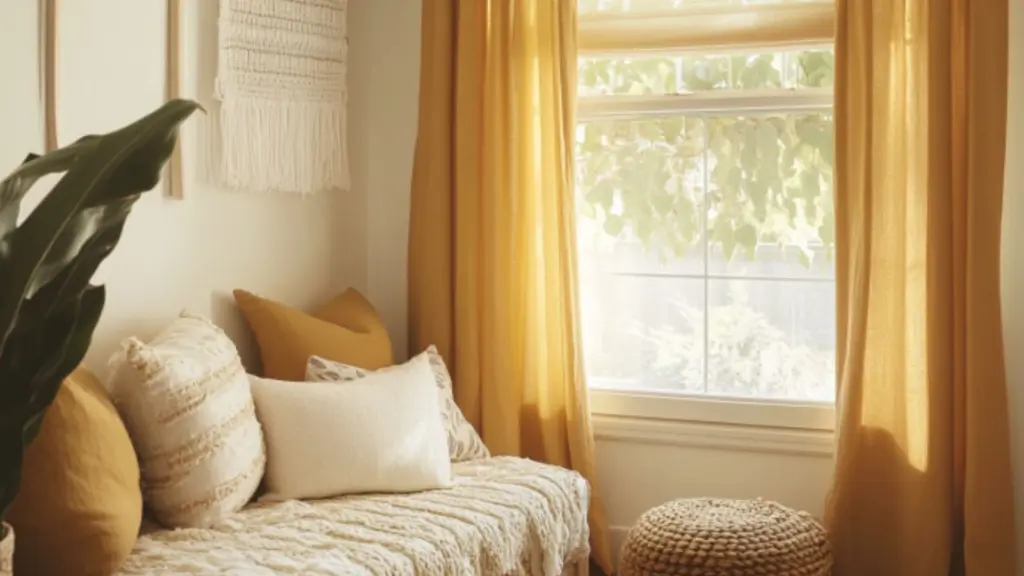
If painting the walls yellow feels like too big of a commitment, consider layering the hue through decor instead. Rugs, curtains, bedding, and wall hangings are perfect places to introduce cheerful color in a way that can be easily updated.
Opt for yellow textiles in simple patterns like gingham, polka dots, or subtle florals. Pair them with neutral backgrounds like grey, white, or beige to keep the look balanced. Accessories such as lampshades, pillows, or canopies can also inject pops of yellow that brighten the space without overpowering it.
Table: Yellow Nursery Accessories to Try
| Item | Ideal Yellow Hue | Styling Tip |
|---|---|---|
| Area rug | Lemon or gold | Use pattern to hide wear |
| Curtains | Light pastel yellow | Layer with blackout liners |
| Crib bedding | Gingham or florals | Mix yellow with white or taupe |
| Wall banner | Mustard or gold felt | Add baby’s name or quote |
These flexible details are easy to swap out as your child grows or your style shifts.
Designing a Flexible Layout for Growth
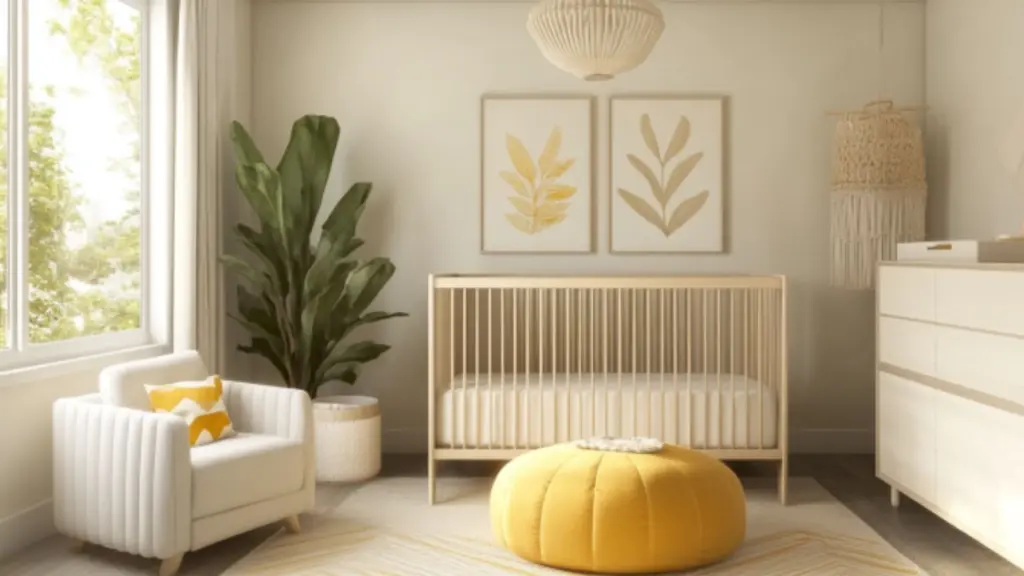
A nursery that grows with your baby needs more than pretty paint and furniture—it needs smart layout planning. Babies become toddlers, and toddlers need space to play, move, and explore. Start by creating zones in the room that can shift as your child’s needs evolve.
Divide the space into three key areas:
- Sleep Zone – The crib or bed should anchor this space. Place it away from windows and in a quieter corner. As your child grows, replace the crib with a twin bed and maintain the same orientation.
- Changing/Storage Zone – Dedicate one wall to changing essentials, clothes, and diapers. Choose a dresser that can remain in use once diapers are a thing of the past.
- Play/Learning Zone – Even infants benefit from tummy time spaces. Use a soft mat, a low toy shelf, and later add a small table for crafts or learning.
Flexible Layout Table
| Zone | Baby Phase | Toddler Upgrade |
|---|---|---|
| Sleep | Crib with mobile | Twin bed with side rails |
| Storage | Changing table with bins | Dresser + closet organization |
| Play | Floor mat + tummy toys | Activity table + bookshelf |
With this layout, furniture and function evolve with your child without the need for a full redesign.
Yellow Accent Walls or Wall Murals
Accent walls are a great way to bring personality into the nursery without painting the entire room. A single yellow wall—whether solid, striped, or illustrated—adds depth and warmth. For a more creative approach, consider a mural or stencil that includes yellow tones.
Florals, rainbows, suns, or whimsical animals all work beautifully in a gender-neutral nursery. Use high-quality, washable paints to ensure longevity and easy touch-ups.
Pros and Cons of Yellow Accent Wall Styles
| Style Type | Pros | Cons |
|---|---|---|
| Solid Paint | Easy to apply, timeless | Can feel flat without texture |
| Murals | Highly custom and creative | Time-consuming and permanent |
| Stencil Patterns | Adds depth and movement | Requires precision |
| Peel-and-stick Art | Easy to change with age | May not stick well long-term |
This is a fun project to personalize your nursery and make it feel one-of-a-kind.
Add Personality with Art and Decorative Touches
Personal touches make a nursery feel warm and meaningful. Use wall art, name signs, and curated shelf decor to bring your baby’s personality—or your hopes for them—into the space. Keep the color scheme mostly yellow, cream, and neutral, with pops of other colors that reflect your vision.
Gallery walls can grow with your child, starting with baby-themed prints and evolving into family photos, drawings, or framed memories. Shadow boxes with hospital keepsakes, ultrasound photos, or baby’s name in wooden letters are also thoughtful ideas.
Decorative Additions for a Growing Nursery
| Item | Description | How It Grows |
|---|---|---|
| Name sign | Wooden or fabric, above the crib | Becomes wall decor or door sign |
| Art prints | Soft animal or sun illustrations | Swap with age-appropriate themes |
| Decorative shelves | Display toys, books, and keepsakes | Later used for school books |
| Memory box or frame | Hold first socks, hospital bracelet | Add new milestones over time |
These personalized accents add emotional value and help the room grow along with your child’s story.
Conclusion
Designing a yellow nursery that grows with your baby is all about blending beauty, functionality, and adaptability. By choosing the right shade of yellow, investing in long-lasting furniture, and layering in meaningful decor, you create a space that evolves naturally with your child’s changing needs. From cozy newborn days to active toddlerhood and beyond, a thoughtfully styled nursery can remain a comforting and cheerful retreat for years to come. Yellow brings joy, warmth, and timeless charm—making it a perfect foundation for a room full of love and memories.

